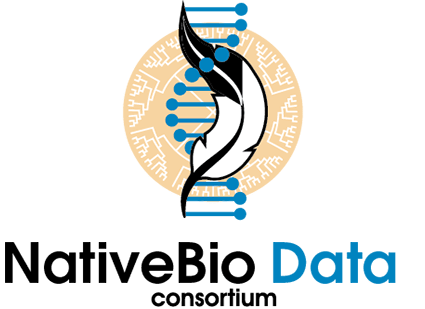Data Sovereignty And Cultural Integrity: Indigenous Scientists' Struggle

Table of Contents
The Threat to Cultural Integrity through Data Misuse
The misappropriation of Indigenous knowledge and data poses a severe threat to cultural integrity. The extraction of data without proper consent or community involvement leads to a range of negative consequences, undermining the very foundation of Indigenous ways of life. This misuse can manifest in several ways:
- Misinterpretation of data leading to inaccurate representations of Indigenous cultures: Data collected without sufficient cultural understanding can be misinterpreted, leading to skewed narratives and stereotypes that reinforce harmful colonial biases. For example, misinterpreted ecological data might lead to inaccurate portrayals of Indigenous land management practices.
- Commercialization of Indigenous knowledge without consent or benefit-sharing: The patenting of traditional medicines or the commercial exploitation of Indigenous knowledge without proper consent or benefit-sharing represents a gross violation of cultural rights and deprives communities of the economic benefits derived from their own intellectual property. This impacts not only financial stability but also the cultural value associated with these practices.
- The loss of traditional ecological knowledge (TEK) due to data extraction without community participation: TEK, accumulated over generations, is crucial for sustainable resource management and cultural survival. Data extraction without community involvement risks losing this invaluable knowledge, potentially leading to irreversible environmental and cultural damage. The loss of knowledge holders further exacerbates this problem.
- Damage to community trust and relationships due to unethical research practices: Unethical research practices, such as the failure to obtain informed consent or to share research findings with the community, erode trust and damage relationships between researchers and Indigenous communities, hindering future collaborations. This lack of trust creates barriers to future research endeavors.
Barriers Faced by Indigenous Scientists in Achieving Data Sovereignty
Indigenous scientists face numerous systemic barriers in their pursuit of data sovereignty. These barriers are not simply logistical; they are deeply rooted in historical power imbalances and systemic inequalities within the scientific establishment.
- Limited access to funding and resources for Indigenous-led research projects: Securing funding for Indigenous-led research projects is often challenging. Funding agencies may prioritize projects that align with Western research methodologies, overlooking Indigenous perspectives and research priorities. This lack of funding limits the ability of Indigenous scientists to conduct their own research.
- Lack of representation in scientific institutions and decision-making processes: Underrepresentation of Indigenous scientists in scientific institutions and decision-making bodies results in a lack of Indigenous voices shaping research agendas and policies. This limits the influence of Indigenous perspectives on research priorities.
- Challenges in navigating complex data governance frameworks and regulations: Existing data governance frameworks and regulations are often ill-equipped to address the unique needs and priorities of Indigenous communities. Navigating these complex systems can be a major hurdle for Indigenous scientists.
- Digital literacy gaps and limited access to technology in some communities: Digital literacy gaps and limited access to technology in some Indigenous communities further hinder their ability to effectively collect, manage, and utilize their own data. Bridging this digital divide is crucial.
- Institutional biases that prioritize Western research methodologies over Indigenous approaches: The dominance of Western research methodologies often marginalizes Indigenous approaches to knowledge creation and data management, hindering the recognition and validation of Indigenous research practices. This bias needs to be actively challenged.
The Importance of Community-Based Participatory Research (CBPR)
Community-Based Participatory Research (CBPR) offers a powerful framework for empowering Indigenous communities to lead research projects and ensure data sovereignty. CBPR is built on the principles of:
- Community ownership and control of data at every stage of the research process: Indigenous communities retain ownership and control over their data throughout the research process, from the initial design to the dissemination of findings. This ensures that research results benefit the community.
- Collaborative knowledge creation and shared decision-making: CBPR emphasizes collaborative knowledge creation, where Indigenous knowledge systems are valued and integrated with Western scientific methodologies. Decision-making is shared between researchers and community members.
- Examples of successful CBPR initiatives involving Indigenous communities: Numerous successful CBPR initiatives demonstrate the effectiveness of this approach in empowering Indigenous communities and protecting their data rights. These initiatives showcase the benefits of community-led research.
Strategies for Promoting Data Sovereignty and Cultural Integrity
To support Indigenous scientists and protect their data rights, concrete steps must be taken:
- Implement robust data governance frameworks that prioritize Indigenous self-determination: Data governance frameworks must be designed with the input and leadership of Indigenous communities, reflecting their unique needs and priorities. This requires a shift away from top-down approaches.
- Increase funding for Indigenous-led research initiatives and capacity building programs: Increased funding is essential for supporting Indigenous-led research initiatives and building the capacity of Indigenous scientists to conduct research on their own terms. This investment is crucial for long-term success.
- Promote ethical data sharing and benefit-sharing agreements: Ethical data sharing agreements must ensure that Indigenous communities receive appropriate benefits from the use of their data. This includes financial compensation and recognition of Indigenous knowledge.
- Foster collaborations between Indigenous scientists and non-Indigenous researchers: Meaningful collaborations between Indigenous and non-Indigenous researchers can contribute to the development of equitable and respectful research partnerships. This requires genuine commitment from all parties.
- Encourage the development of culturally appropriate data management tools and technologies: Developing culturally appropriate data management tools and technologies can help to address the digital literacy gaps and improve access to technology in Indigenous communities. This ensures that technology serves the community, rather than hindering it.
Conclusion
The struggle for data sovereignty is paramount for Indigenous scientists to protect their cultural integrity and maintain control over their knowledge. By addressing the systemic barriers faced by Indigenous communities and adopting ethical research practices, such as community-based participatory research, we can foster a more equitable and just scientific landscape. It is imperative that we prioritize Indigenous-led data sovereignty initiatives and invest in empowering Indigenous scientists to lead the research that directly impacts their communities and cultures. Only through genuine collaboration and respect for Indigenous knowledge can we truly achieve data sovereignty and protect the cultural integrity of Indigenous peoples. Let's work together to advance data sovereignty and support the crucial work of Indigenous scientists. Support Indigenous-led research and advocate for policies that promote data sovereignty and cultural integrity.

Featured Posts
-
 Giorgia Meloni E Sanremo Un Opinione Positiva Sulla Conduzione E Le Canzoni
May 14, 2025
Giorgia Meloni E Sanremo Un Opinione Positiva Sulla Conduzione E Le Canzoni
May 14, 2025 -
 Haiti Deki Guevenlik Krizi Protestolar Ve Gelecek
May 14, 2025
Haiti Deki Guevenlik Krizi Protestolar Ve Gelecek
May 14, 2025 -
 Scotty Mc Creerys Son Honors George Strait A Sweet Video Tribute
May 14, 2025
Scotty Mc Creerys Son Honors George Strait A Sweet Video Tribute
May 14, 2025 -
 The P And L Of Diddy A Deep Dive Into The Financial Success And Challenges Of A Music And Business Icon
May 14, 2025
The P And L Of Diddy A Deep Dive Into The Financial Success And Challenges Of A Music And Business Icon
May 14, 2025 -
 Tommy Tiernans Wife A Rare Glimpse Into Her Life And Unexpected Vatican Invitation
May 14, 2025
Tommy Tiernans Wife A Rare Glimpse Into Her Life And Unexpected Vatican Invitation
May 14, 2025
